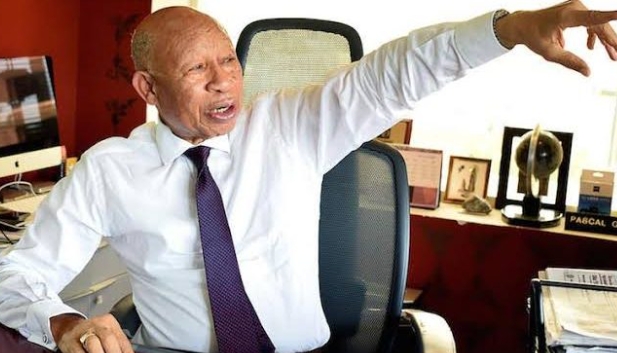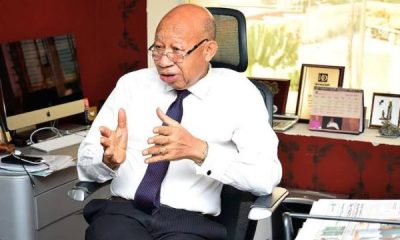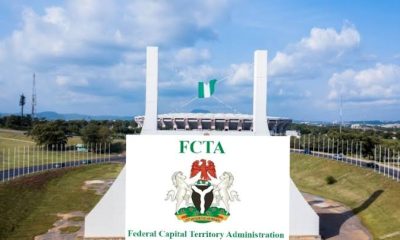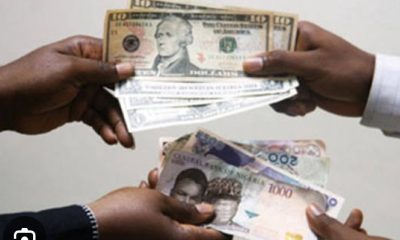News
Why some stations sell petrol above N1,000/litre — Marketers

Marketers of petroleum products say filling stations still sell Premium Motor Spirit, otherwise called petrol, above N1,000 per litre because they have yet to sell out the old stock.
According to them, the old stock of PMS was bought at the rate of N970 and many still have the product in their tanks.
The PUNCH reported that on December 19, 2024, the Dangote refinery slashed the ex-depot price of its petrol from N970 to N899.50 per litre.
Similarly, the Dangote refinery announced its partnership with MRS Petrol station to sell petrol from its retail outlets nationwide at N935 per litre.
The President of Dangote Industries Limited, Aliko Dangote, clarified that the reduction in the price of PMS was primarily driven by the complex dynamics of market forces.
This generated what some called a price war in the downstream sector, forcing the Nigerian National Petroleum Company Limited to reduce its ex-depot price to N899 per litre.
Since the price cuts, NNPC retail outlets in Lagos and its environs have adjusted their pumps to N925/litre.
Similarly, some major marketers were forced to sell petrol below N1,000 a litre. Some sell at N990, N980, N950 or N935.
However, our correspondent observed that despite the price reduction, many filling stations are still selling a litre of petrol above N1,000.
In many filling stations in Lagos, Ogun and many other states, the price still goes for as high as N1,070 per litre.
Although some have effected some changes, they still sell around N1,050, N1,030, N1,010 or N1,000 per litre as of Wednesday.
The price disparity between these filling stations and those owned by major marketers has been blamed for the queues in the latter.
Speaking in an interview with our correspondent, the National Vice President of the Independent Petroleum Marketers Association of Nigeria, Hammed Fashola, said the marketers were still struggling with the old stock they bought at the old price.
Fashola maintained that the reduction cannot just take effect immediately.
“Some of our members have old stocks. So, there’s no way they can just start immediately. It’s only when they go back to the market to purchase at the lower price, then they will start selling at the new price. If you look around, as of yesterday, I see many of our members have come down to N940 or N935 in Lagos. So, by next week, you will see more of them. Once they finish with their old stock, they will start selling at the reduced rate,” Fashola stated.
According to him, marketers are aware of the competition out there and no one wants to be left behind.
“You cannot deceive yourself. This is competition. This is what we have been asking for. So, if you like, put your fuel at N1,500, nobody will buy it. So, it’s not deliberate. If you are still seeing a few of us that are still selling at N1,000, it is because of the old stock. Once they finish with their old stocks, they will start selling at the lower price,” he emphasised.
When Fashola was reminded that the filling stations would not have retained the old price if the price had gone up, he replied, “Well, as a businessman, your purpose is to remain in the business. So, if you make a huge loss, you can go down. That’s just it. It is natural.”
Nonetheless, the IPMAN Vice President maintained that a lot of marketers are now making losses due to the price reduction.
“Even at that, some of us still make losses. I can tell you that some people when their stock gets to a level that they can bear the loss, they will reduce their prices. I can take myself an example. Some of my stations yesterday, when we looked at our stock, maybe we had 20,000 litres in some of our stations, we calculated our losses and I thought it was minimal. So, we reduced our prices despite being the old stock.
“That’s the truth. That’s because people are running away. That’s the reality. Many of our members are doing that too. When they calculate the loss and they can bear this loss, they fix a new price,” he stated.
While acknowledging the positive impacts of deregulation, Fashola noted that there is also a negative effect to it.
“The negative effect of deregulation is like what we are just discussing. If you buy a product at maybe, N1,000 today, and tomorrow, the price goes down to N950. You’ve already recorded a N50 loss. You buy a product today from a depot and the following day, the price goes down. Have you finished that stock? It’s not possible. That is the negative aspect of it. Therefore, you have to be careful. You have to go with information before you make your purchases, even before you make your imports.
“And there are some factors you have to consider. That is the exchange rate and the crude oil price. Those are the major factors that determine the price of petroleum products. So, you have to be futuristic. You have to be able to project very well before you make your move. Otherwise, you enter into trouble. That is one of the negative aspects of deregulation. But, we have to cope with it,” he explained.
The marketer lamented that those in the business now face financial challenges following the removal of fuel subsidies.
As the price of PMS rose from N200 to N1,000 per litre, Fashola disclosed that marketers are finding it difficult to do business, especially as the interest rate rises monthly in banks.
“When you go to the bank, you know the interest you will pay. So, which way? We need more money to remain in business–more money, but with a little margin. This is really impacting on us. But we all call for deregulation and we have to live by it. We don’t have an option,” he added.
Fashola advised marketers to get themselves prepared for the challenges ahead, the reality, and the new trend, saying “We cannot be doing our business the way we used to do it before.”
On his part, the National Publicity Secretary of the Petroleum Products Retail Outlet Owners Association of Nigeria, Joseph Obele, said no member of the association has bought fuel at the reduced rate.
“None of our members has bought at the reduced rate at the moment,” Obele said, justifying why some filling stations still sell PMS at a higher rate.
He added that there was a wide disparity between the price of PMS in Lagos and Port Harcourt or other places far from Lagos.
According to him, the NNPC sells PMS at N899 in Lagos and N970 in Port Harcourt due to logistics.
Credit: PUNCH
News
Tinubu: Pascal Dozie’s contributions to Nigeria’s economic architecture left an enduring legacy

By Kayode Sanni-Arewa
President Bola Ahmed Tinubu extends his heartfelt condolences to the Dozie family, the business community, and all Nigerians on the passing of Chief (Dr.) Pascal Gabriel Dozie, an elder statesman, entrepreneur, and banker. He was 85.
Chief Pascal Dozie, OON, was a visionary whose contributions to Nigeria’s economic architecture left an enduring legacy.
As the founder of Diamond Bank and the pioneer Chairman of MTN Nigeria, he was at the forefront of two of the most transformative sectors in Nigeria’s development journey: banking and telecommunications.
Chief Dozie, a steadfast believer in Nigeria’s vast potential, was pivotal in shaping the financial services industry and expanding access to mobile connectivity nationwide. His influential leadership extended well beyond corporate boardrooms.
In addition to his business acumen, Chief Dozie served as a former director at the Central Bank of Nigeria, President of the Nigerian Stock Exchange, and Chairman of the Nigerian Economic Summit Group, dedicating decades of service to national policy formulation, private sector development, and youth empowerment.
President Tinubu lauds Chief Dozie as “a rare breed business leader whose wisdom, humility, and pioneering efforts laid a foundation upon which many continue to build. His passing is a profound loss to the private sector and Nigeria.”
The President prays for the peaceful repose of Chief Dozie’s soul and extends his condolences to his wife, children, and extended family. He calls upon the Nigerian private sector to honour Chief Dozie’s memory by upholding the values of integrity, innovation, and nation-building, for which he was renowned.
*Bayo Onanuga
Special Adviser to the President
(Information & Strategy)
News
TRADE WAR! U.S. angry over Nigeria’s import ban on 25 products

By Kayode Sanni-Arewa
The country’s reaction comes at a time when tensions are rising over its sweeping tariffs imposed on several countries.
Nigeria’s import ban on 25 different product categories impacts U.S. exporters, particularly in agriculture, pharmaceuticals, beverages, and consumer goods, the United States Trade Representative said in a statement on Monday.
According to the statement posted on its X platform, Nigeria’s restrictions on items like beef, pork, poultry, fruit juices, medicaments, and spirits limit U.S. market access and reduce export opportunities.
“These policies create significant trade barriers that lead to lost revenue for U.S. businesses looking to expand in the Nigerian market.
The country’s reaction comes at a time when tensions are rising over its sweeping tariffs imposed on several countries.
Last week, the Trump administration imposed various tariffs ranging between 10 per cent and 65 per cent on different countries across the world, including Nigeria which got a 14 per cent tariff on its exports to the United States.
Nigerian stocks on Monday recorded their biggest drop in recent times following the impact of U.S President Donald Trump’s tariffs on global trade markets.
Investors lost about N659 billion at the close of trading after the Nigerian Exchange’s All Share Index (ASI) decreased by 1.23 percent, its biggest single-day decline this month.
Stocks like Oando and Honeywell Flour Mills helped to push the market lower. Oando decreased the most, from N42 to N37.80, down by N4.20 or 10 percent, while Honeywell dropped from N11.32 to N10.19, losing N1.13 or 9.98 percent.
The Nigerian Exchange Limited (NGX) All-Share Index (ASI) and equities market capitalisation decreased from the preceding day’s 105,511.89 points and N66.147 trillion, respectively, to 104,216.87 points and N65.488 billion. The Nigerian market’s return this year has decreased to +1.25 percent.
Countries such as China have since said they would retaliate from the imposed tariffs.
China vowed on Tuesday to “fight to the end” against fresh tariffs of 50 percent threatened by US President Donald Trump, further aggravating a trade war that has already wiped trillions off global markets.
The Minister of Finance, Wale Edun, on Monday said that the Federal Government will boost non-revenue as a means of cushioning the adverse effects to trade tariffs imposed on countries by President Trump.
Edun also assured that the Economic Management Team (EMT) will meet to assess the likely impact of the 14 per cent tariff on goods exported from Nigeria to the United States.
He said the EMT will afterwards, make recommendations to cushion its impact on the nation’s economy.
Edun, who was speaking at an event organised by the Ministry of Finance Incorporated on Monday, said that while the adverse effect on Nigeria will be through an oil price plunge, the government is intensifying efforts to ramp up oil production and boost non-oil revenues.
News
INTERVIEW: Introduction of Child Rights Curriculum In Nigerian Universities Will Take CRA to Families – Dr Obiorah Edogor

…says implementation of CRA in Nig is far below average
Dr. Obiorah Edogor, is a Mass Communication lecturer at the Nnamdi Azikiwe University, Awka Anambra State and Child Rights Advocate, in this chat with Naijablitznews.com Associate Editor, Gloria Ikibah, he spoke extensively on why the university domesticated Child Rights Reporting into its journalism curriculum and the general studies course as UNICEF worked with the National Universities Commission (NUC) and the National Board for Technical Education (NBTE) to include the course in all of the unbundled Mass Communication courses, called JMS Journalism and Media Studies 403” and that the course would empower journalists-in-training with the capacity and understanding of the issues around child rights and how to report them.
Hear him:
What do you mean by child right curriculum?
Child rights curriculum is the outlined educational programmes which are to guide the teaching and learning of everything approved to be taught concerning the natural entitlements and privileges that every child should have or enjoy as a human being.
Why did you introduce it in the university system, one would have thought it will be in secondary school?
I feel that it was introduced in the university system as the best place where those who would learn it could easily put it into practice. The lecturers could research different dimensions of it, and the university students with their level of maturity would be guided by it.
The students could also take the messages back to their homes more than the secondary school students. However, it is not out of place to have it in secondary schools, too.
Of what benefits is this curriculum to the achievements of the implementation of the Child Rights Act?
The curriculum will be useful towards achievements of the implementation of the Child’s Rights Act 2003 because it is the easiest way to teach the students about the contents of the CRA of Nigeria. It is a way of making students have knowledge of their rights and responsibilities as provided in the CRA 2003.
How will you score the implementation of the Act in Nigeria?
I will score the implementation of the Act in Nigeria very poor because of the different concerned individuals and the relevant government agents’ lackadaisical attitude toward practical protection of the rights of the child in many angles.
How many universities have introduced the child rights curriculum?
I don’t have the exact number of universities that have introduced the child rights curriculum in Nigeria, but I say that every department of Mass Communication in Nigeria is expected to have introduced from 2019, because it was part of the Benchmark Minimum Academic Standard which all mass communication stakeholders including lecturers selected from different universities, representatives of different communication regulatory bodies and relevant international organisations prepared for teaching undergraduate programmes of mass communication as directed by the National Universities Commission (NUC).
However, I must emphasise that Nnamdi Azikiwe University is one Nigerian university that has done exceptionally well with regard to the implementation of child rights reporting and education curriculum. The university Senate has approved introduction of child rights courses in the General Studies Unit, faculties of education, law, and the social sciences. That’s why I facilitated UNICEF partnership with the university to train the lecturers who would teach the newly introduced courses in the university.
FIRST PUBLISHED ON July 23, 2023.
-

 News5 hours ago
News5 hours agoJust in: Founder of Diamond Bank and ex-chairman of MTN, Paschal Dozie is dead
-

 News12 hours ago
News12 hours agoRainfall washes away newly constructed multi-million naira road in Edo State
-

 News12 hours ago
News12 hours agoEvangelist Kekere Jesu buried amidst deep sorrow
-

 Metro12 hours ago
Metro12 hours agoStray bullet from VIP convoy kills bystander in Abuja
-

 Sports5 hours ago
Sports5 hours agoReal Madrid keeping tabs on Victor Osimhen
-

 News6 hours ago
News6 hours agoNaira Nosedives Against Dollar
-

 News24 hours ago
News24 hours agoVerbatim Magazine Honours Prof Nnamchi For Legislative Excellence, Quality Leadership
-

 News11 hours ago
News11 hours agoLG autonomy: Govs block council chairmen from opening CBN accounts


















